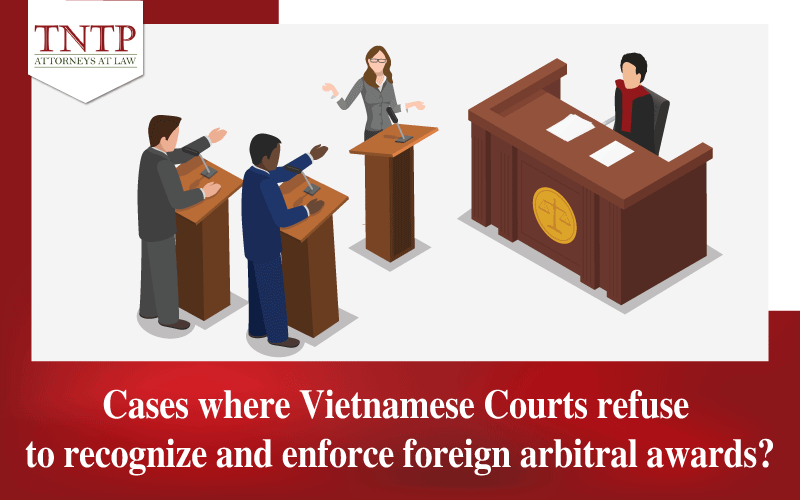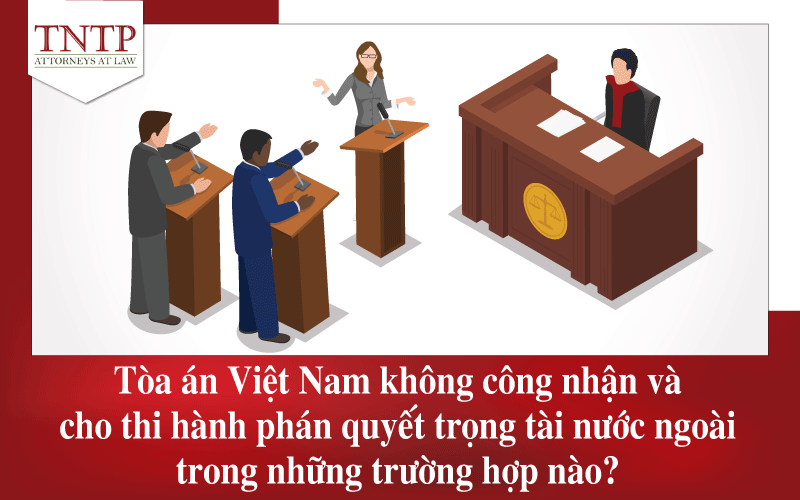Debt Collection: Process, Regulations, and Costs
Debt collection represents a challenging legal issue that both domestic and foreign enterprises commonly face when forming contracts or business relationships in Vietnam. More than just a financial process, effective debt collection requires comprehensive knowledge of legal frameworks, litigation procedures and practical expertise. Drawing on extensive experience in this field, TNTP will provide essential regulations and practical procedures to help enterprises protect their rights effectively and legally.
1. Common Challenges in Debt Collection for Businesses in Vietnam
Debt collection is the process where creditors take measures to compel debtors to fulfill payment obligations according to established agreements or contracts. It extends beyond simply reclaiming due amounts, involving a multi-layered legal procedure that includes preparing and submitting evidence, applying asset security measures, timing negotiations strategically, initiating lawsuits, following litigation procedures, enforcing judgments and coordinating with competent authorities.
Debt collection from enterprises in Vietnam faces several challenges stemming from debtor behavior and legal barriers. Debtors often delay payments, evade obligations, refuse cooperation, hide information, disperse assets or change addresses to obstruct creditors. The legal system itself presents obstacles through complex, lengthy litigation procedures that require specialized expertise, resulting in ineffective debt recovery. Creditors also struggle to substantiate their claims – from gathering and verifying evidence to ensuring the legal validity of contracts between parties.
2. Vietnam Corporate Debt Collection Regulations You Need to Know
Debt collection in Vietnam is governed by a multi-sector system of legal instruments: civil, commercial, procedural and enforcement laws, along with sector-specific laws (credit, construction, enterprise…). Before initiating any measures, the creditor must establish the legal grounds for the right to collect debt (contract, security, arbitration agreement, judgment/award) and comply with principles of lawful evidence collection, limitation periods for initiating lawsuits, as well as regulations on the methods of handling secured assets. Understanding the “rules of the game” helps avoid risks such as losing the right to sue, evidence being rejected by the court or liability for criminal violations.
Key relevant legal instruments include:
- Civil Code: regulates civil relations;
- Commercial Law: regulates commercial relations;
- Civil Procedure Code, Commercial Arbitration Law: regulate litigation and arbitration procedures;
- Civil Judgment Enforcement Law: regulates enforcement procedures;
- Investment Law, Construction Law, Credit Institutions Law, etc.: provide detailed regulations on rights and obligations of the parties in each specific type of transaction.
Therefore, all debt collection activities must operate within this legal framework. A thorough understanding of applicable laws and precise application of procedures directly impacts recovery effectiveness while minimizing creditor risks.
3. Our Step-by-Step Debt Collection Process in Vietnam
Step 1: Collecting and assessing initial documents
Specific tasks include: (i) Collecting contracts and appendices, invoices, delivery minutes, payment documents, correspondence, related emails; checking enterprise registration, secured transaction registration, payment information at banks; (ii) Assessing risks and proposing a fast-track plan (negotiation) or legal plan (mediation/litigation).
Step 2: Negotiation or mediation
Negotiation is prioritized because it minimizes impact on business relationships and costs less. After receiving a case, TNTP helps creditors draft and send resolution proposals based on legal grounds and the debtor’s financial situation or facilitates discussions based on the debtor’s payment offer. If the debtor responds favorably and an agreement is reached, TNTP assists in documenting the agreement. Otherwise, the creditor can record all responses as evidence for future recovery steps.
As an alternative to direct negotiation, parties may choose mediation by a mutually selected agency, organization or individual. This approach ensures objectivity and creates opportunities for a fair agreement. However, the effectiveness of mediation still depends on the parties’ voluntary compliance with the results.
Step 3: Filing lawsuits at court or arbitration
If negotiation or mediation fails, depending on contractual terms, the creditor may initiate proceedings at a competent court or arbitration center. The litigation dossier includes: statement of claim, contract, payment documents, demand letters, mediation minutes, requests for interim measures (if any) and other evidence. Litigation procedures must strictly comply with jurisdiction, limitation periods and evidentiary requirements; mistakes at this stage may prolong recovery or even cause the creditor to lose the right to sue.
Step 4: Applying interim measures (if necessary)
If the debtor is found to be dissipating assets or destroying evidence, TNTP will advise the creditor to exercise the right to request the competent dispute resolution authority to apply interim urgent measures under procedural law. This measure helps preserve the value of the debt and secure evidence before a final ruling is issued. The requesting party may be required to provide security under law; therefore, the creditor needs clear legal advice on advantages and disadvantages before proceeding.
Step 5: Enforcement of Judgments/Decisions/Awards
After a Judgment/Decision/Award of a competent dispute resolution authority in Vietnam takes legal effect, the judgment creditor has the right to request the Civil Judgment Enforcement authority to organize enforcement and the judgment debtor has the obligation to comply. During this stage, enforcement authorities may apply coercive measures such as attachment and disposal of assets, deduction of money from bank accounts, etc., to protect the lawful rights of the judgment creditor.
TNTP assists by preparing enforcement requests, coordinating with relevant authorities, monitoring progress and offering timely solutions when challenges arise. This approach ensures effective enforcement while reducing risks of asset loss and avoiding prolonged recovery periods.
4. Essential Documents for a Debt Collection Case Evaluation
A valid file allows clear proof of debt obligations, time of breach and damages, helping the court issue precise judgments and enforcement authorities quickly verify assets for coercive measures. Depending on each stage and case, required documents may vary; however, typically a complete file includes:
- Statement of claimPetition;
- Contract or agreement established between the parties;
- Documents and evidence relating to the debt;
- Documents proving demand for payment;
- Documents showing civil/legal capacity of the individual/entity;
- Other evidence proving damages or infringed rights (if any);
- Power of attorney or lawyer designation (if the enterprise authorizes a third party to file the lawsuit).
A comprehensive, well-documented and legally sound file, submitted for the proper purpose, determines 70–80% of success in litigation and enforcement. When preparing documentation, ensure all evidence is collected following proper procedures, carries legal validity and emphasizes favorable elements while downplaying unfavorable ones.
5. Our Expertise and Debt Collection Capabilities in Vietnam
TNTP International Law Firm & Associates has operated in Vietnam since 2016, with offices in Ho Chi Minh City, Da Nang and Hanoi. Over a decade of practice, our lawyers have successfully handled numerous high-value debt recovery cases, including those exceeding USD 2.7 million. We have effectively resolved complex disputes involving large-scale construction contracts, credit debt and cross-border commercial matters. TNTP partners with international debt collection organizations including Sino Credit Management (HK) Ltd, SM Credit Information Co., Ltd and Creditreform (UK) Limited. Our combined legal expertise and practical skills help us achieve recovery success rates above the market average.
When handling a case, we first conduct thorough file reviews, assess legal risks and propose tailored solution packages – ranging from warning letters and negotiation to litigation, enforcement measures and bankruptcy procedures when necessary. Successful debt recovery hinges on strategic choices: pursuing early negotiation when feasible, requesting interim protective measures when assets might be dispersed and professionally managing litigation when unavoidable. Beyond legal knowledge, TNTP’s lawyers bring practical experience and proven methods that significantly improve recovery outcomes.
6. Debt Collection Litigation Costs in Vietnam: What to Expect?
Debt collection costs in Vietnam typically include multiple items, not limited to those listed below:
- Court fees and charges: calculated based on the value of the debt claimed under law.
- Commercial arbitration costs: determined by the fee schedule of each arbitration center and based on the value of the dispute.
- Lawyer’s fees: for legal consultation, representation in negotiation, litigation or arbitration.
- Translation and legalization costs: applied to foreign-language documents or evidence originating from foreign enterprises/partners.
- Expert examination costs: in cases requiring examination of signatures, contracts, accounting records, goods quality or other specialized evidence.
- Enforcement costs: including enforcement request fees and actual expenses incurred in asset handling, attachment, auction, etc.
Businesses should allocate adequate funds to complete the entire debt collection process, avoiding mid-way withdrawals that waste both time and money already spent. To reduce costs, consider negotiating before pursuing litigation, focusing only on collecting essential evidence to prevent unnecessary examinations and utilizing arbitration when contractual clauses permit it, as this approach can be more time-efficient in certain cases.
7. Debt collection consulting services
Professional debt collection services in Vietnam are legal services recognized by law that allow lawyers or law firms to act on behalf of clients throughout the debt recovery process. Their scope includes assessing files, identifying legal grounds, negotiating with debtors, drafting legal documents, handling court or arbitration proceedings and assisting with judgment enforcement. When conducted legally, these services ensure transparency and legitimacy throughout the recovery process.
By using professional debt collection services, creditors minimize legal risks while saving time and money. Rather than navigating complex procedures and legal obstacles themselves, creditors can focus on their core business while legal experts represent them in proceedings. Service providers with deep knowledge of Vietnam’s legal system can develop effective recovery strategies tailored to each situation.
The quality of debt collection services largely depends on the provider’s expertise and experience. A reliable partner should have lawyers well-versed in Vietnamese law, substantial practical experience and the ability to handle both domestic and international cases. Key selection factors include cost transparency, regular progress updates and flexible strategic guidance. Ultimately, choosing a professional and trustworthy debt collection service is crucial for maximizing recovery opportunities and protecting creditors’ legal rights.
TNTP hope this article enhances your understanding of debt collection procedures and regulations in Vietnam, helping you select the most appropriate solution to protect your financial interests. For specific legal assistance, please contact a reputable professional debt collection service provider.



